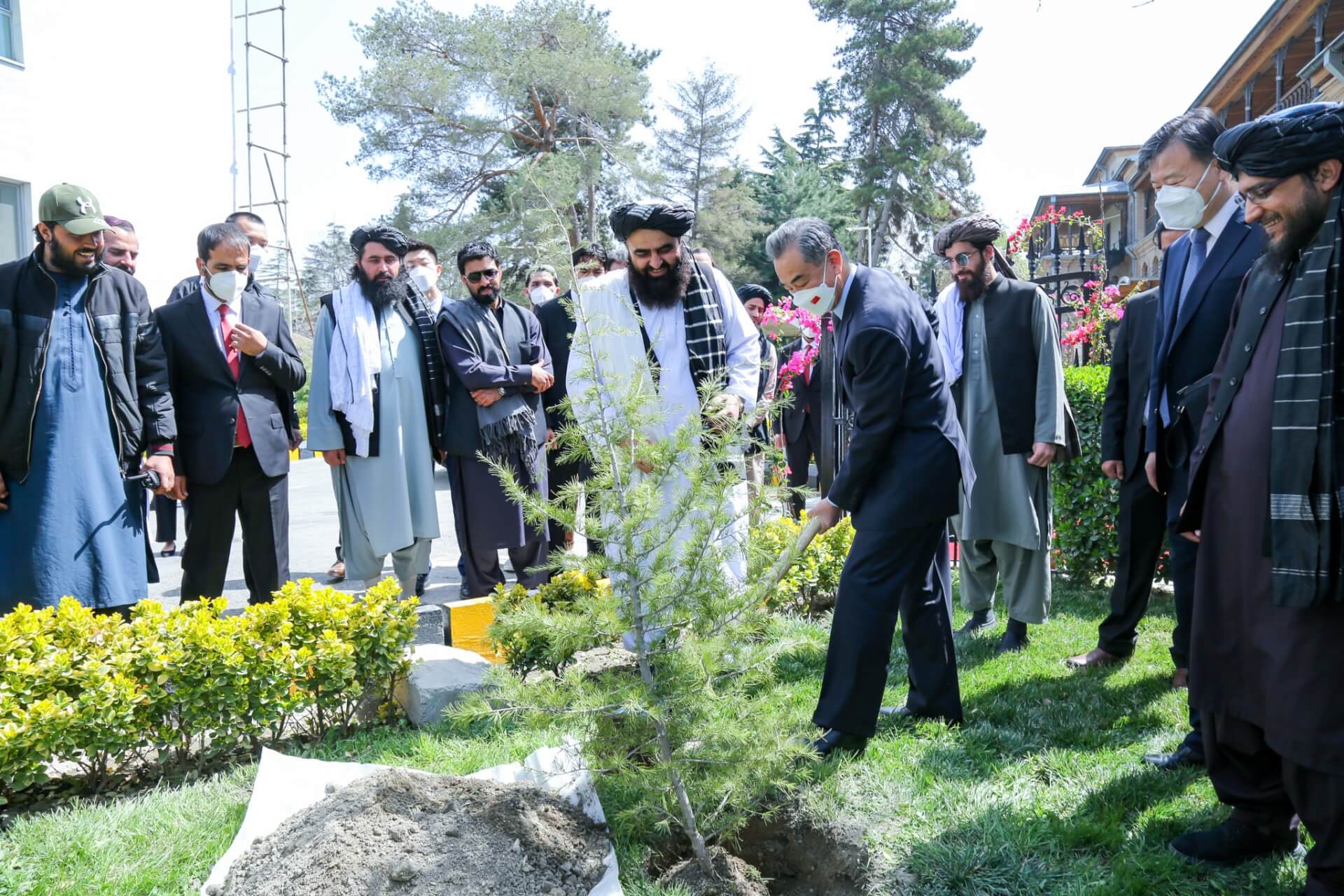During his trip to Afghanistan, Chinese State Councilor and Foreign Minister (FM) Wang Yi introduced Beijing’s “Three Respects” and “Three Nevers” on the Afghan issue. Wang spoke of the concepts during his meeting with Acting Deputy Prime Minister of the Afghan Interim Government Mullah Abdul Ghani Baradar and Acting FM Amir Khan Muttaqi in Kabul on Thursday.
Biden is in Europe for NATO, G7 summits & European Council meeting, all about confrontation. Meanwhile Chinese FM Wang Yi is spreading stability, reconstruction and inclusiveness. Wang reportedly will visit India after Afghanistan. This is the difference between China and the US. pic.twitter.com/GFLBYXV3yN
— Hu Xijin 胡锡进 (@HuXijin_GT) March 24, 2022
Elaborating on China’s “Three Respects,” Wang said that China respects the:
- Independence, sovereignty and territorial integrity of Afghanistan
- Independent choices made by the Afghan people, and
- Religious beliefs and national customs of Afghanistan.
State Councilor & Foreign Minister Wang Yi visited #Afghanistan. He said, #China never interfered in Afghanistan's internal affairs, never seeks self-interest or spheres of influence in Afghanistan.
— Hua Chunying 华春莹 (@SpokespersonCHN) March 25, 2022
Wang, the highest-level Chinese official to visit the country since the Afghanistan Taliban seized power last August, further explained Beijing’s “Three Nevers.” He stressed that Beijing has never:
- Interfered in Afghanistan’s internal affairs
- Sought to secure its own self-interests or exercise its own influence in Afghanistan
- “Hurt” Afghanistan, making it “the only major country” to never do so.
“We are proud of this,” Wang asserted. The senior diplomat also expressed interest in developing “normal and friendly neighbouring relations” with Afghanistan “on the basis of the Five Principles of Peaceful Coexistence,” and “help Afghanistan achieve true independence and self-generated development.”
As #Afghan friends often point out, #China is the only major country that has never hurt Afghanistan. We are proud of this.
— Hua Chunying 华春莹 (@SpokespersonCHN) March 25, 2022
On the issue of terrorism, Wang called on the Afghan side to “earnestly honour its commitment” and “take effective measures to resolutely crack down on all terrorist forces,” including the East Turkestan Islamic Movement, which China considers to be a threat to its national security.
Muttaqi responded that the Afghan caretaker government is “highly vigilant against the resurgence of terrorism, and will take resolute and strong measures to eliminate the terrorist forces.” He also added that Kabul “fully understands China’s concerns and will never allow any force to use the Afghan territory to harm the Chinese friends.” Muttaqi concluded the meeting by thanking China for providing humanitarian assistance during COVID-19 as well as the winter.
Speaking of the security concerns, Chinese foreign ministry spokesperson Wang Wenbin said during his regular press conference on Thursday that “China stands ready to leverage its strength and contribute to [Afghanistan’s] lasting stability and security.”
Afghan Foreign Minister Mawlawi Amir Khan Muttaqi welcomed Chinese Foreign Minister Wang Yi to Kabul in a special visit to Afghanistan.
— Abdul Qahar Balkhi (@QaharBalkhi) March 24, 2022
The Foreign Ministers met in Storai Palace-MoFA to discuss political, economic & transit issues, air corridor, dried fruit export, educational pic.twitter.com/2GIR4bPZqg
Meanwhile, Afghanistan’s Foreign Ministry spokesperson, Abdul Qahar Balhki, said on Twitter that both sides also discussed the trade of dried fruits, issuance of visas, primary work for mining, as well as Afghanistan’s role in the China-proposed Belt and Road Initiative.
Wang’s tour started from a visit to Pakistan to attend the Organization of Islamic Cooperation meeting as a special guest. During the meeting, Wang said that China and Pakistan should strengthen coordination on Afghanistan. After Afghanistan, the FM landed in India on Thursday to meet with External Affairs Minister S. Jaishankar and National Security Advisor Ajit Doval. Wang is also the highest-level Chinese diplomat to visit India since the onset of the COVID-19 pandemic and the border clashes. He will also visit Nepal on his way back to Beijing.

